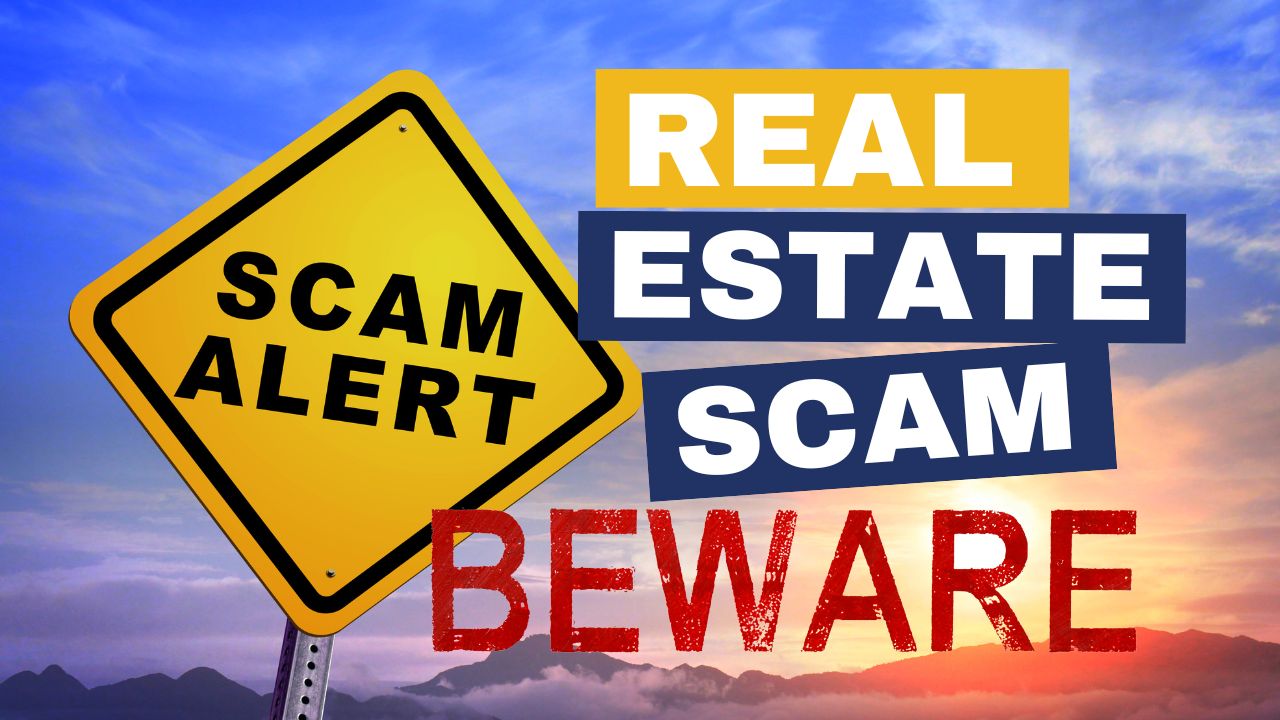The real estate market, with its high-value transactions, is a prime target for scammers. Last month, my listing was the target of three scam attempts. Here’s a rundown of some common real estate scams and tips on how to protect yourself.
1. Landscaping Scam
The scammer, posing as the homeowner, will call a landscaper to have a tree cut down at a home for sale. Then, they will send a check for a larger amount than what is quoted. The scammer will ask for a refund of the excess amount. If the landscaper tries to deposit the check, the check will bounce and they will be at a loss.
How to Avoid It:
– Verify the name of the homeowner with the landscaper and contact the homeowner.
– Never accept a check for a larger amount than what is quoted.
– Put up signs on the tree outside the home saying, “Do NOT cut down this tree.” (After the second scam attempt, this was my solution).
2. Wire Fraud
Wire fraud is one of the most common and financially devastating real estate scams. Here’s how it typically works: hackers gain access to email accounts involved in a real estate transaction and monitor communications. At a critical point, usually just before closing, they send a spoofed email with fraudulent wiring instructions. The buyer, thinking the email is legitimate, wires funds directly to the scammer’s account.
How to Avoid It:
– Always verify wire instructions in person or via a known, trusted phone number.
– Be wary of last-minute changes to wiring instructions or pressure to act quickly.
– Use secure, encrypted email communications whenever possible.
3. Foreclosure Relief Scams
Homeowners in distress are prime targets for foreclosure relief scams. Scammers offer to negotiate with the homeowner’s lender to modify their loan or save their home from foreclosure, often charging high upfront fees. These scammers do nothing to help and may even cause the homeowner to lose their property faster.
How to Avoid It:
– Avoid companies that guarantee to stop the foreclosure process or that charge fees upfront.
– Verify the legitimacy of the company through government resources like the Consumer Financial Protection Bureau (CFPB).
– Consult with a HUD-approved housing counselor.
Be aware of these scammer techniques and report scams if you see them. Always trust your instincts—if something feels off, it probably is. When in doubt, consult with trusted professionals to ensure the safety and legitimacy of your real estate dealings. Watch my video on YouTube for scams I’ve encountered recently.


 Facebook
Facebook
 X
X
 Pinterest
Pinterest
 Copy Link
Copy Link
